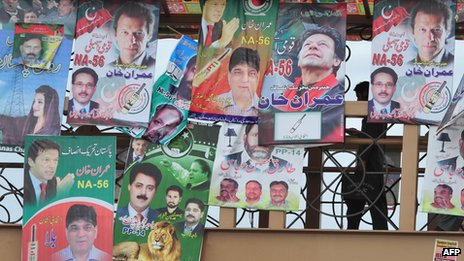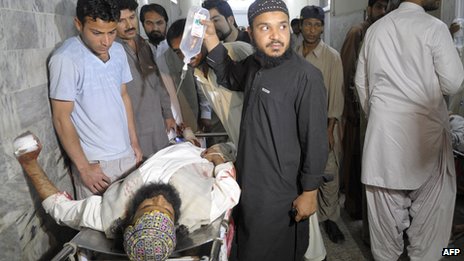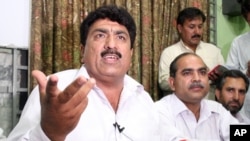A deadly suicide attack in Peshawar, Pakistan today that killed 10 and injured 70 was reportedly aimed at Police Commissioner Sahibzada Anees, the presiding officer in the appeal of Dr. Shakil Afridi, the man who helped the U.S. search for Osama bin Laden and is now serving a 33-year sentence on terrorism charges.
Read more @ Deadly Blast in Pakistan May Have Targeted Judge in Afridi Case
The doctor helps us find Osama Bin Laden and our Politician-in-Chief won't lift a hand to help him.








